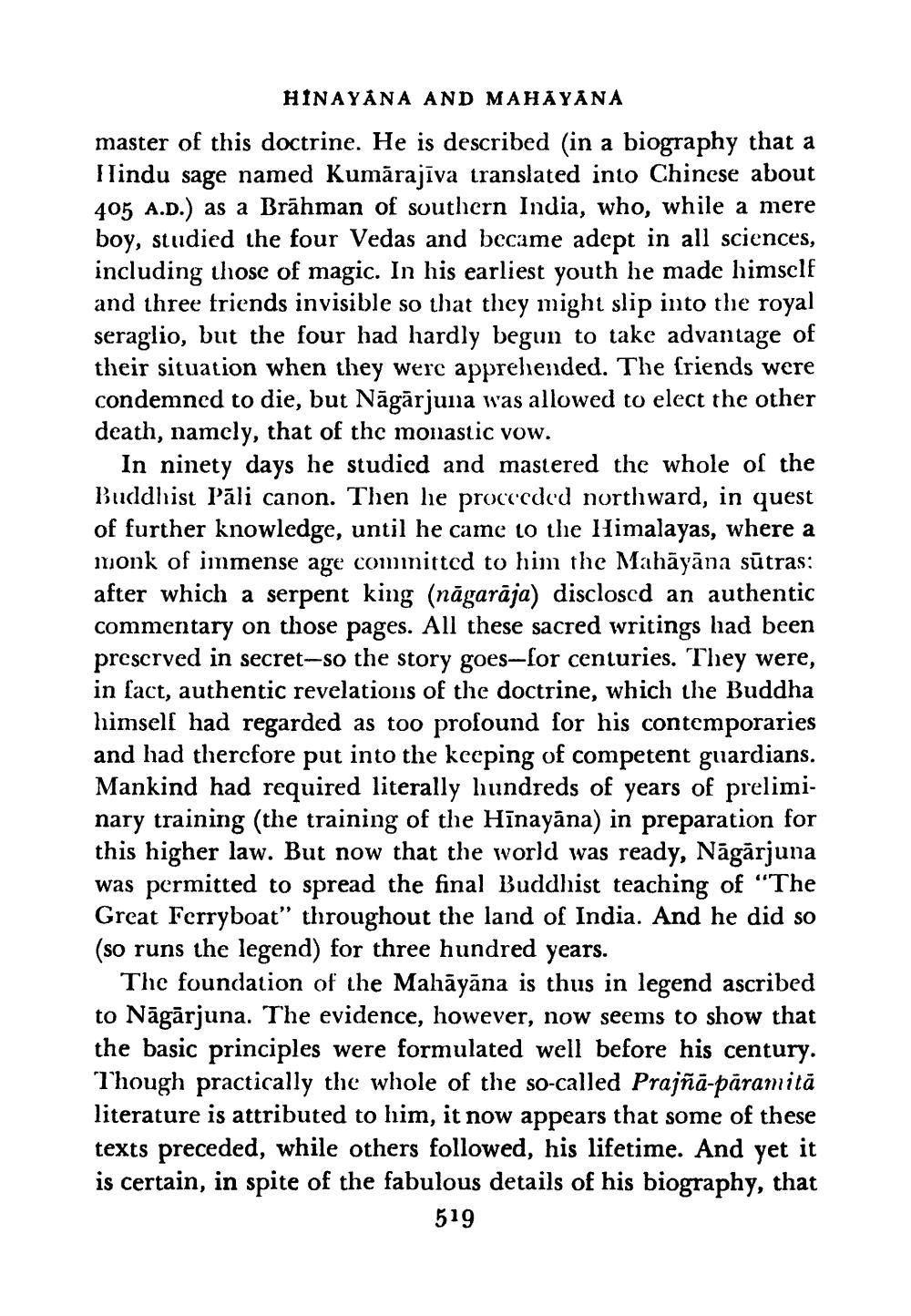________________
HINAYANA AND MAHAYANA master of this doctrine. He is described (in a biography that a Ilindu sage named Kumārajīva translated into Chinese about 405 A.D.) as a Brāhman of southern India, who, while a mere boy, studied the four Vedas and became adept in all sciences, including those of magic. In his earliest youth he made himself and three friends invisible so that they might slip into the royal seraglio, but the four had hardly begun to take advantage of their situation when they were apprehended. The friends were condemned to die, but Nāgārjuna was allowed to elect the other death, namely, that of the monastic vow.
In ninety days he studied and mastered the whole of the Buddhist Pāli canon. Then he proceeded northward, in quest of further knowledge, until he came to the Himalayas, where a monk of immense age committed to him the Mahāyāna sūtras: after which a serpent king (nāgarāja) disclosed an authentic commentary on those pages. All these sacred writings had been prescrved in secret-so the story goes-for centuries. They were, in fact, authentic revelations of the doctrine, which the Buddha himself had regarded as too profound for his contemporaries and had therefore put into the keeping of competent guardians. Mankind had required literally hundreds of years of preliminary training (the training of the Hīnayāna) in preparation for this higher law. But now that the world was ready, Nāgārjuna was permitted to spread the final Buddhist teaching of "The Great Ferryboat” throughout the land of India. And he did so (so runs the legend) for three hundred years.
The foundation of the Mahāyāna is thus in legend ascribed to Nāgārjuna. The evidence, however, now seems to show that the basic principles were formulated well before his century. Though practically the whole of the so-called Prajñā-paramită literature is attributed to him, it now appears that some of these texts preceded, while others followed, his lifetime. And yet it is certain, in spite of the fabulous details of his biography, that
519




